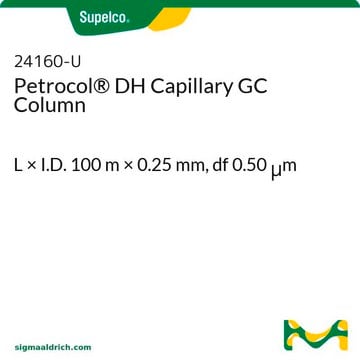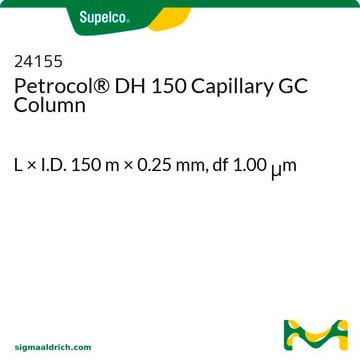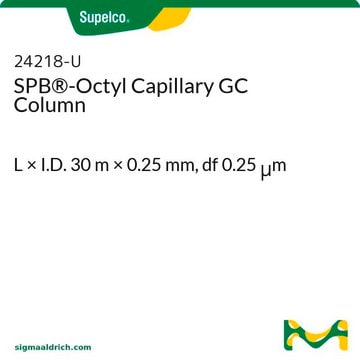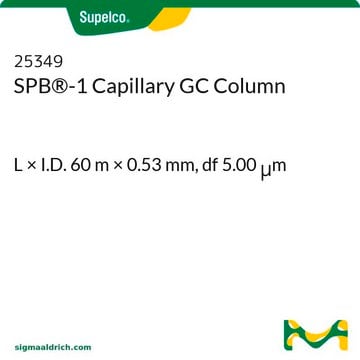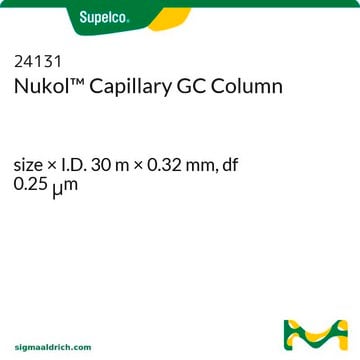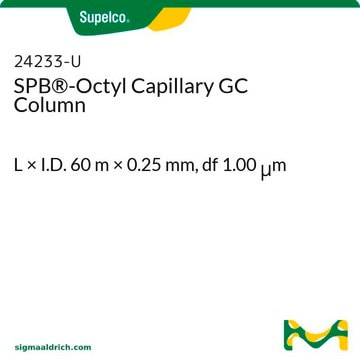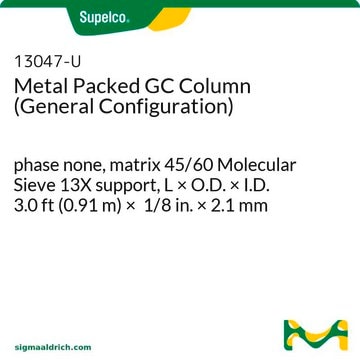24133-U
Petrocol® DH 50.2 Capillary GC Column
L × I.D. 50 m × 0.20 mm, df 0.50 μm
Synonym(s):
FS CAP Petrocol® DH 50.2 50M .20MM .50UM(47300)
Sign Into View Organizational & Contract Pricing
All Photos(1)
About This Item
UNSPSC Code:
12000000
eCl@ss:
32119290
NACRES:
SB.54
Recommended Products
material
fused silica
Quality Level
Agency
ASTM® D5134,D5441,D6729,D6730,D6773
meets requirements for USP G1, G2 and G9
parameter
-60-320 °C temperature (isothermal or programmed)
Beta value
100
df
0.50 μm
technique(s)
gas chromatography (GC): suitable
L × I.D.
50 m × 0.20 mm
matrix active group
Bonded; poly(dimethyl siloxane) phase
application(s)
chemicals and industrial polymers
petroleum
column type
capillary non-polar
Related Categories
General description
Application: This column is designed for detailed hydrocarbon analyses of naphthas, gasolines, and similar samples, according to ASTM D5134.
USP Code: This column meets USP G1, G2, and G9 requirements.
Phase:
USP Code: This column meets USP G1, G2, and G9 requirements.
Phase:
- Bonded
- Poly(dimethyl siloxane)
- -60 °C to 320 °C (isothermal or programmed)
Application
Petrocol® DH 50.2 Capillary GC Column may be used in 4-Methylpentan-2-ol dehydration, by thermal and mechanochemical regimes, using ball milling technique and GC-MS.
Other Notes
We offer a variety of chromatography accessories including analytical syringes
Legal Information
ASTM is a registered trademark of American Society for Testing and Materials
Petrocol is a registered trademark of Merck KGaA, Darmstadt, Germany
Personal Protective Equipment
dust mask type N95 (US), Eyeshields, Gloves
Choose from one of the most recent versions:
Already Own This Product?
Find documentation for the products that you have recently purchased in the Document Library.
Conversion of 4-methylpentan-2-ol over powder catalysts prepared by ball milling.
Mulas G
J. Mater. Synth. Process, 8 (5-6), 385-391 (2000)
A K Punetha et al.
Journal of chromatographic science, 40(7), 377-382 (2002-08-31)
The estimation of olefinic content in conversion processes such as the etherification of olefins in fluid catalytic cracking (FCC) gasoline is essentially required. Gas chromatography (GC) is the well-established method for the quantitative analysis of olefins in etherification processes. The
Our team of scientists has experience in all areas of research including Life Science, Material Science, Chemical Synthesis, Chromatography, Analytical and many others.
Contact Technical Service